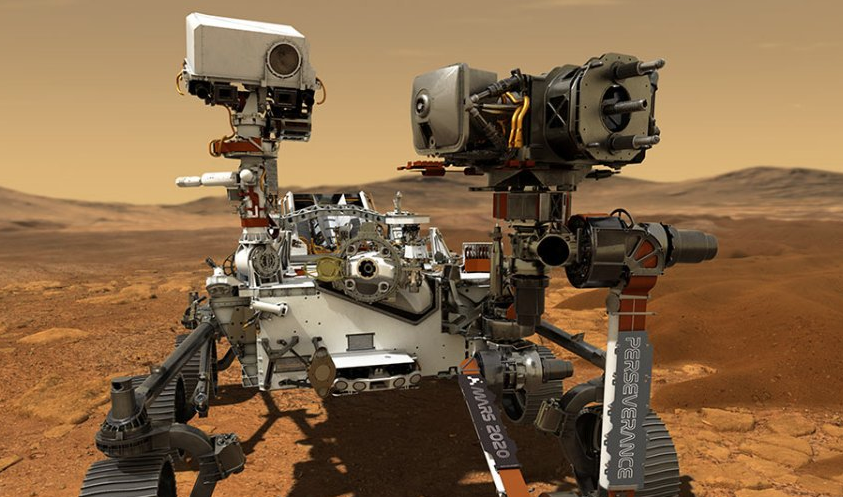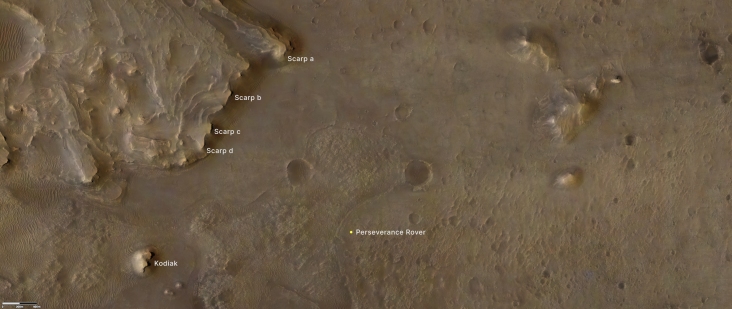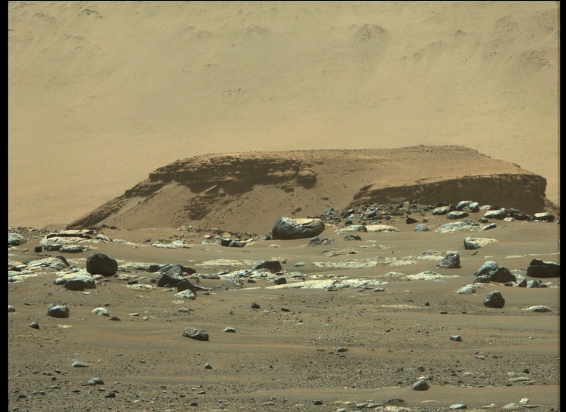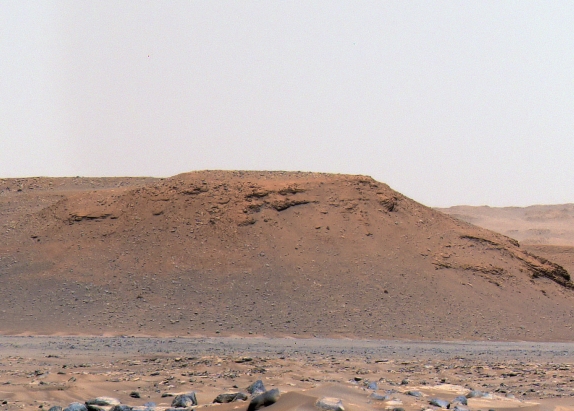-
1 from 5
The Perseverance Rover is exploring the surface of Mars, and its records from the crater have confirmed scientists’ theory. know more
Credit: NASa/JPL-Caltech -
2 from 5
Perseverance was sent to Jezero Crater in order to confirm that the site once housed a lake. He mainly explored the ancient delta region, a rock formation at the mouth of a river.
Image Credit: NASA/JPL-Caltech/University of Arizona/USGS -
3 from 5
The delta identified from persistence images is a suitable location for finding rocks that may contain organic matter.
Credit: NASA/JPL-Caltech/ASU/MSSS -
4 from 5
The delta depicted consists of several cliffs (“Scarp” in English), which were also recorded by the robot.
Credit: NASA/JPL-Caltech/ASU/MSSS -
5 from 5
The cliffs consist of sediments brought by the river, which helped confirm the hypothesis of scientists about the existence of a lake in the past. Pictured, “Scarp A”
Credit: NASA/JPL-Caltech/ASU/MSSS
robot determinationthat arrived Mars In February of this year, it already helped Earth scientists deepen theories about the Red Planet. A study published in Science on October 7 used images taken by the robot to confirm the presence of a lake.
Perseverance explored the so-called Jezero Crater. The site attracted the interest of scientists from the US Space Agency (NASA) and others are involved in the mission due to the possibility of harboring life in the past. The images showed not only that the lake was located in the crater, but also that the river fed it.
According to the study, the lake’s existence dates back to billions of years ago, when the Martian atmosphere allowed it to flow Water across the surface of the planet.
It has had large variations in water volume over time, but it is not yet known if this is caused by floods or climate change. The lake dried up.
In addition to important confirmation for scientists, the persistence images also provided information that would aid in the mission to confirm that Mars had life, even if it was microscopic.
Using the robot’s superior camera, it was possible to identify places with the greatest potential to search for bits of rock and sediment that might contain organic components and other evidence of life.
The search for this evidence is part of the Perseverance Core mission, which is sent to Mars in 2020. It is expected that rock material that will be sent back to Earth will be collected, and then analyzed by scientists.
The article was the first to be produced using data obtained by Perseverance. Now, the robot will be dedicated to exploring the delta remnant – a rocky body formed of sediment – of the river that passed through the crater.
The base of this delta is a place with great potential for extracting rocks that may contain organic matter, according to scientists on the expedition.
*Under the direction of Wellington Ramalhoso
Participate:

“Incurable thinker. Food aficionado. Subtly charming alcohol scholar. Pop culture advocate.”




:strip_icc()/i.s3.glbimg.com/v1/AUTH_da025474c0c44edd99332dddb09cabe8/internal_photos/bs/2024/E/S/FOGJAKQHGcAXk5vTMaAQ/108984394-topshot-people-cast-their-in-person-early-ballot-for-the-2024-general-election-at-th.jpg)





More Stories
What ChatGPT knows about you is scary
The return of NFT? Champions Tactics is released by Ubisoft
What does Meta want from the “blue circle AI” in WhatsApp chats?